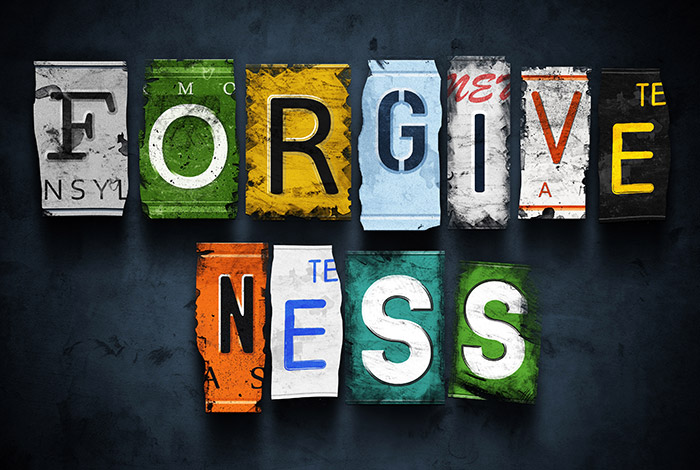
The American Psychological Association (APA) defines forgiveness as “willfully putting aside feelings of resentment toward someone who has committed a wrong, been unfair or hurtful, or otherwise harmed you in some way.” When entering recovery from a substance use disorder or other addiction, one commonly experiences a variety of challenging emotions, predominantly shame and guilt, as they begin to face their past decisions and actions that were not aligned with their true values. The ability to forgive oneself and others does not mean excusing or supporting these harmful actions or decisions. Rather, it allows individuals to let go of resentments and anger that can impede the progress of their recovery towards a healthier, happier life. The practice of forgiveness empowers the recovering individual and their loved ones to heal from the past so that they can move on with their lives in a more positive and peaceful trajectory.
Research studies have shown that there are many benefits to choosing forgiveness towards oneself and others. Benefits include reductions in depressive symptoms and anxiety, stronger and healthier relationships, increased levels of self-esteem and hope, enhanced capacity for managing interpersonal conflict, and increased ability to cope with life’s many challenges. Below are some examples of how those who have been suffering can practice forgiving themselves, as well as how their supporters can forgive them in turn for the pain that the addiction has caused.
It is vital to remember that addiction is not your fault and it does not define you. Self-forgiveness is an important step in dealing with the shame and guilt you may experience as a person struggling with addiction and entering the recovery process. Steps to take when engaging in the process of self-forgiveness can include:
- Accepting responsibility for what you have done and making amends to those who have been wronged, which is articulated in the 12-Steps and other recovery-oriented systems of support.
- Apologizing to those you have hurt and making a commitment to do better moving forward.
- Writing out your thoughts and feelings as they come and go, and facing them with honesty and objectivity.
- Relying on those in your support system (doctors, therapists, peers in recovery, trusted loved ones) to provide a safe space for you to open up about your emotions, and not being afraid to connect with others who can empathize with your experience—and perhaps even learn from it.
- Treating yourself with compassion, giving yourself praise when it is due, and allowing yourself to feel pain when you need to. In other words, treating yourself as you would a good friend who is going through something hard.
- Practicing the “4 R’s of Self Forgiveness”: Responsibility, Remorse, Restoration, Renewal
Addiction takes a toll not only on the individual experiencing the disorder, but on their families and friends as well. When we have been hurt by someone who is in the throes of an addiction, forgiving them for the pain that has been caused can be extremely difficult, but it is an essential part of repairing ruptured relationships and restoring family systems and friendships to a healthy, functional state. Holding onto resentment and anger will not serve anyone who is directly going through recovery, nor will it benefit those who are supporting them. Steps to take to begin to forgive a loved one in recovery from addiction include:
- Educating yourself about how addiction works—read the scientific literature about addiction, understand potential triggers, behavioral patterns, and related mental health symptoms that your loved one may be experiencing.
- Being patient—recovery takes time, and the trajectory for overcoming an addiction looks different for everyone.
- Establishing boundaries and implementing consequences when needed—doing so will help to keep your loved one in recovery accountable for their actions while deterring you from unknowingly enabling maladaptive behaviors.
- Taking care of yourself—create your own support system, join a support group for friends and family of individuals in addiction recovery, receive family therapy and use it a space to discuss forgiveness, seek out your own individual therapy to cope with the stress and anxiety that may arise throughout this process.
Recovery from an addiction is an emotional, challenging, dynamic, complicated, beautiful, and transformative journey for the recovering individual themselves, as well as for those special people who walk with them on that journey. Forgiveness of self and others is a powerful tool these individuals and their loved ones can implement as they seek to heal the past wounds that may have contributed to the development of the addiction. In doing so, they can embark on creating a life that is free from the heavy emotional burdens that they have carried for far too long.
If you or a loved one is struggling with substance use disorder, please feel free to reach out to us at info@centerforliving.org or call us at 212-712-8809.